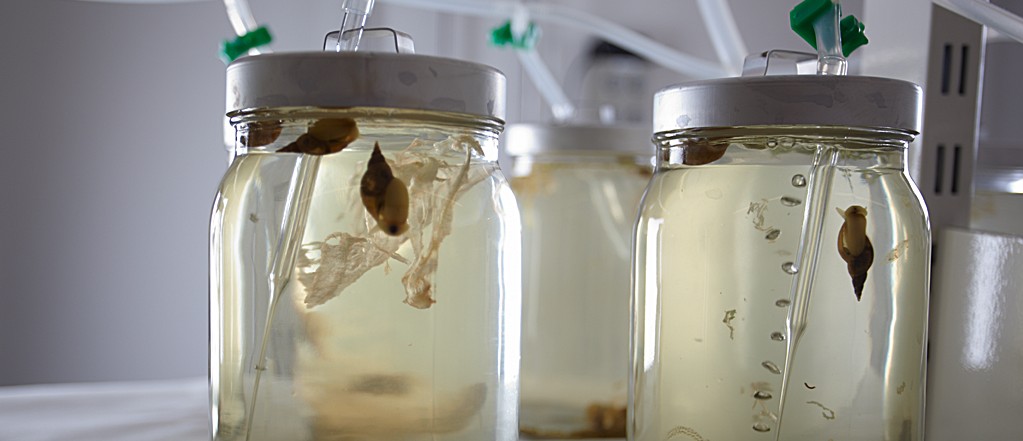Why
Several chemicals have the potential to disrupt vertebrate growth and development by interfering with the thyroid hormone system, and the investigation and development of thyroid hormone sensitive endpoints in different vertebrate classes including fish, amphibians and mammals is ongoing. Invertebrates do not possess a similar thyroid hormone system and it is unknown if they produce thyroid hormones, but thyroid hormone receptors and enzymes known to be involved in vertebrate thyroid hormone synthesis have been identified in several invertebrate species, and vertebrate thyroid hormones have been shown to disrupt growth and development of echinoderms and mollusks. If chemicals able to disrupt the vertebrate thyroid hormone system are also able to affect invertebrates is largely unknown.
How
In this project we investigate if model chemicals known to disrupt the vertebrate thyroid hormone system will also affect juvenile development of the great pond snail (Lymnaea stagnalis) which is a freshwater gastropod mollusk. Using L. stagnalis as model organism the OECD test guideline 243 identifies reproductive effects of chemicals but no endocrine specific endpoints are included.
Relevance
The need for test guidelines that can detect endocrine disruption of invertebrate species has been acknowledged and identified as a huge gap in standardized test guidelines at international workshops arranged by EU in 2016-2017. Investigation of the effects of vertebrate thyroid hormone system disrupting chemicals in L. stagnalis will help the development of potential biomarkers and endpoints for later inclusion in existing OECD invertebrate test guidelines to help better protect invertebrates against chemical exposure and raise concern for vertebrate thyroid hormone disruption.
The project is funded by the Nordic Chemical Group under the Nordic Council of Ministers as a collaboration between SDU, University of Oslo, and Swedish University of Agricultural Sciences.
